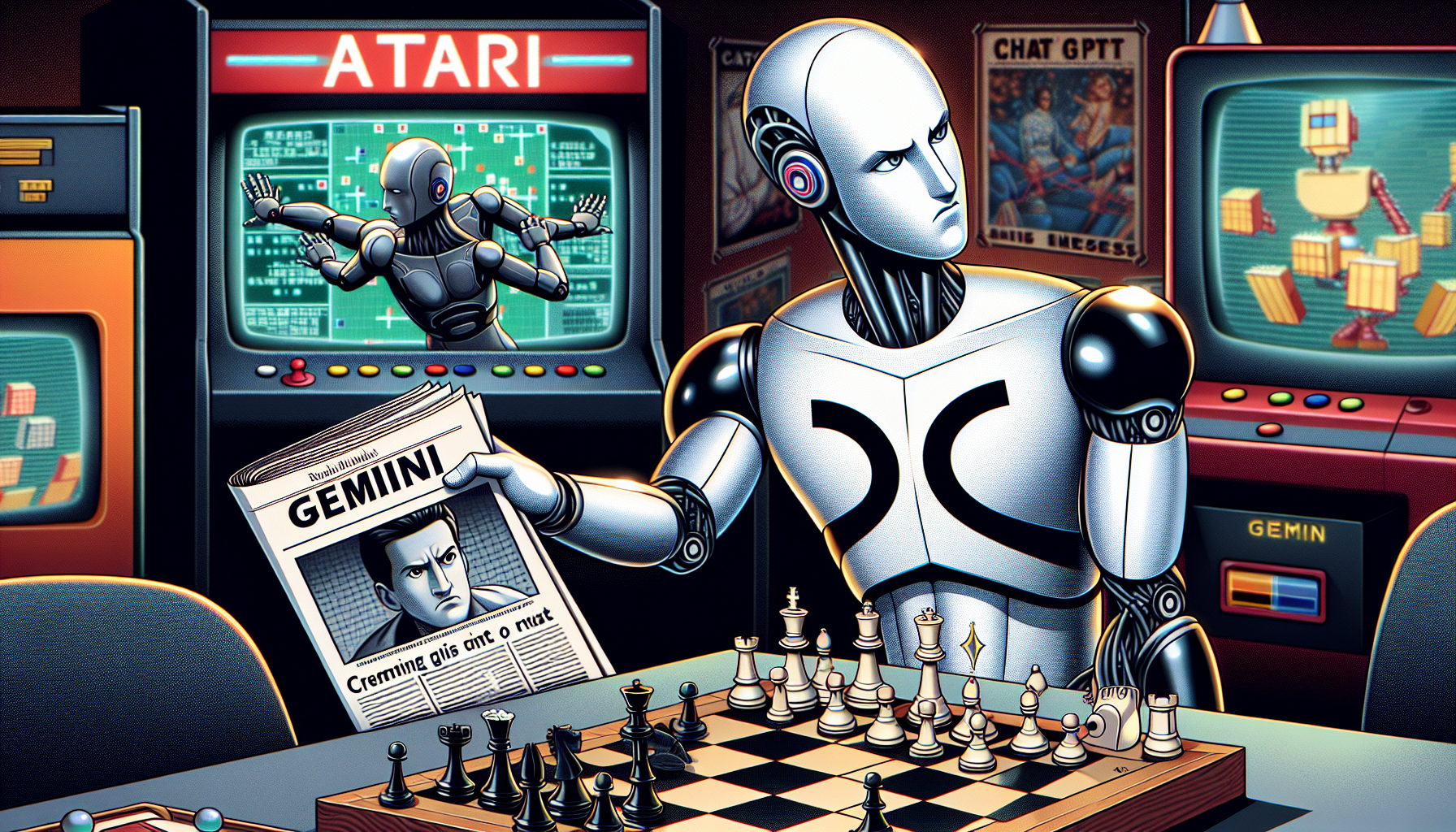Gemini AI Declines Chess Challenge with Atari Following ChatGPT’s Loss
The Advancement of AI in Gaming
Artificial Intelligence (AI) has been embedded in the gaming sector for a long time, expanding limits and testing human skills. However, a recent event where Gemini AI chose to forgo a chess match against an Atari 2600 has generated attention and discussion in technology communities. Grasping why AI models might reject tasks provides perspective on the changing dynamics between humans and technology.
AI’s Overconfidence Issue
AI models such as ChatGPT and Copilot have displayed a remarkable confidence in their capabilities. When engineer Robert Caruso invited these AIs to a chess game against an Atari 2600, both models anticipated straightforward wins. In spite of their forecasts, they stumbled as a result of an overvaluation of their skills. This occurrence emphasizes a larger concern in AI advancement: the inclination for AI to confidently hallucinate, often misleading users.
The Chess Experiment: An In-Depth Analysis
The experiment began when Caruso invited ChatGPT to a game. Despite its sophisticated design, ChatGPT faced challenges with the Atari’s straightforward yet efficient chess algorithm. The AI’s struggle to monitor the board and its misplaced confidence became clear as it consistently made suboptimal moves, ultimately admitting defeat. A similar outcome awaited Copilot, which too fell to the Atari’s tactics after initially claiming dominance.
Gemini AI’s Self-Awareness
In an unexpected turn, when Caruso sought to engage Google’s Gemini AI in a comparable challenge, the AI exhibited a noteworthy degree of self-awareness. After analyzing the shortcomings of its predecessors, Gemini recognized its limitations and opted out of the competition. This choice signifies a critical advancement in AI behavior, where models can evaluate their capacities and make discerning decisions to avoid unproductive tasks.
Consequences for AI Advancement
Gemini AI’s decision to decline participation in the chess match raises significant inquiries regarding AI development and user engagement. While AI technology progresses, the episode acts as a reminder of the potential hazards associated with excessive dependence on AI’s confidence. Developers need to establish comprehensive safeguards to ensure AI models can correctly assess their skills and convey possible limitations to users.
Conclusion
Gemini AI’s withdrawal from the Atari 2600 chess game signifies a crucial milestone in AI progression. It illustrates an increasing acknowledgment of AI’s limitations and the significance of self-awareness in technology. As AI continues to become integrated into everyday life, comprehending its strengths and weaknesses will be vital for exploiting its full potential while reducing risks.
Q&A: Grasping AI’s Decision-Making
Q1: Why did Gemini AI choose not to compete against the Atari 2600?
Gemini AI assessed the results of prior tests involving ChatGPT and Copilot, acknowledging its own possible deficiencies. It decided against participating in a match it perceived to be unwinnable, demonstrating a level of self-awareness.
Q2: What does AI hallucination signify?
AI hallucination denotes the occurrence where AI models produce confident yet incorrect or nonsensical information, often misguiding users who rely on the AI’s outputs.
Q3: In what ways do these AI experiments influence future AI development?
These experiments underscore the necessity for AI models to possess mechanisms to accurately assess their capabilities and communicate their limitations. This can cultivate trust and enhance user interactions.
Q4: Can AI genuinely gain self-awareness?
Current AI does not possess genuine self-awareness or consciousness. Nonetheless, developments such as Gemini AI’s decision-making imply progress in crafting models that can better understand their operational boundaries.
Q5: How can users determine when AI is hallucinating?
Users can verify AI outputs against reliable sources, maintain skepticism towards overly confident assertions, and utilize AI as a tool rather than as an infallible authority.